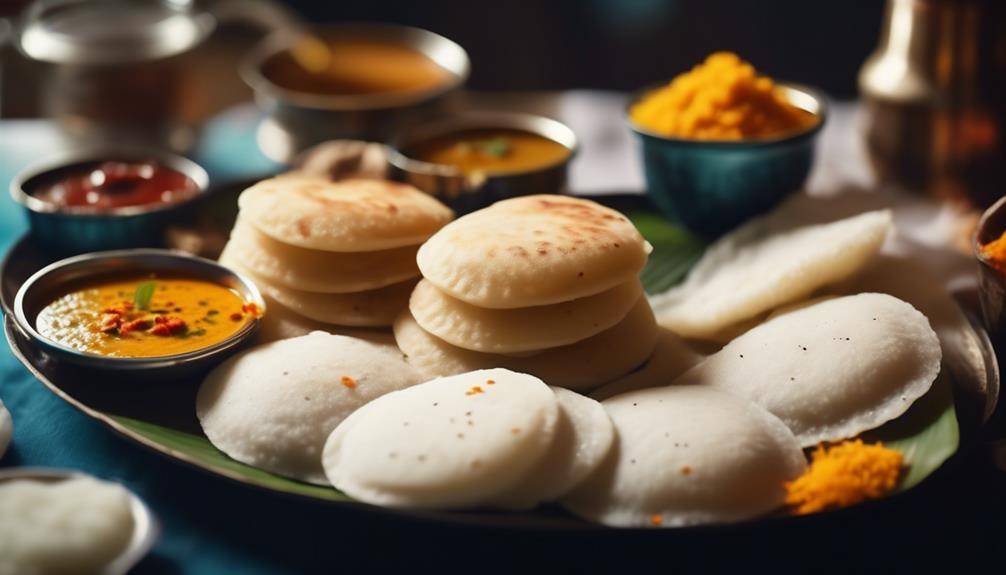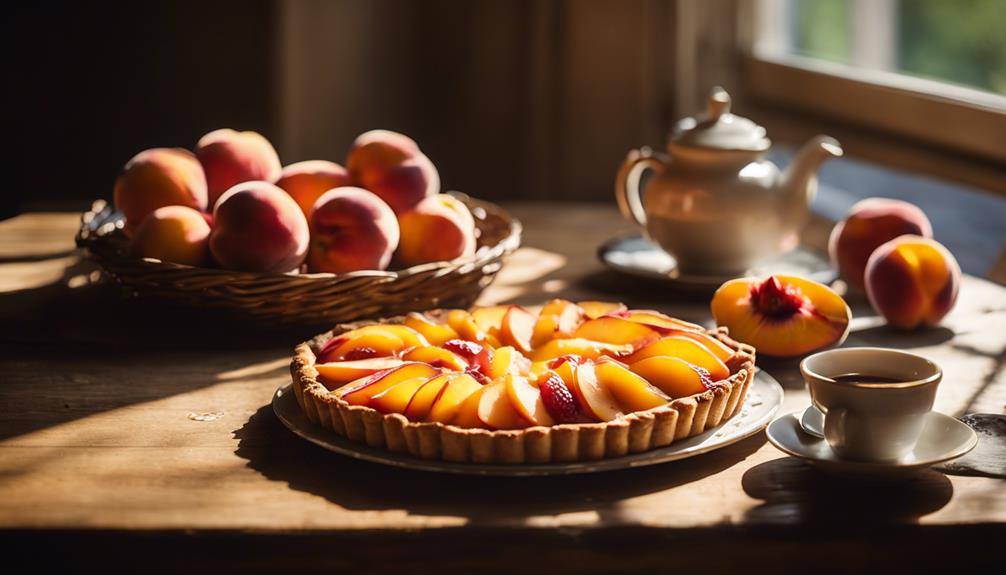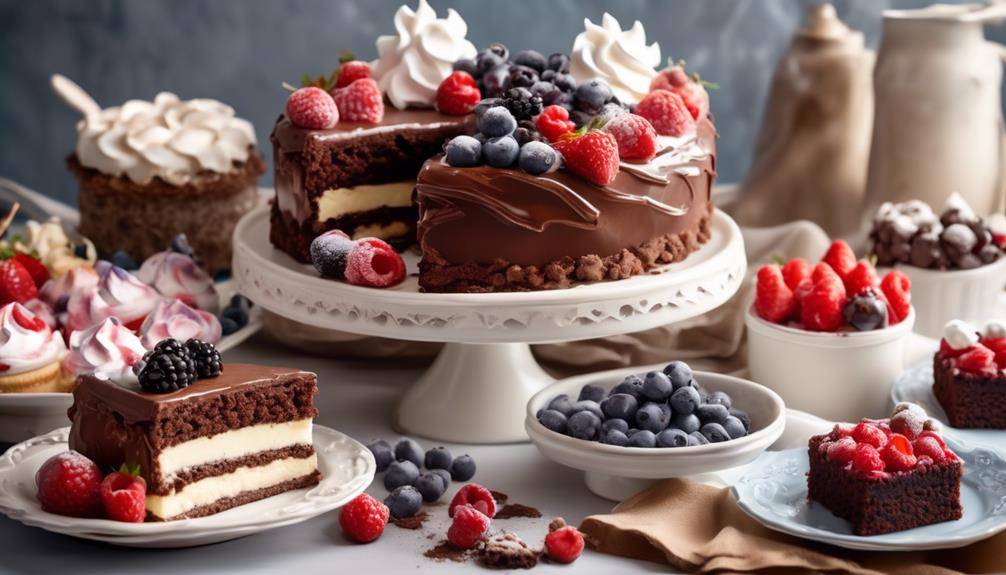The History Of The Best Country Fried Steak
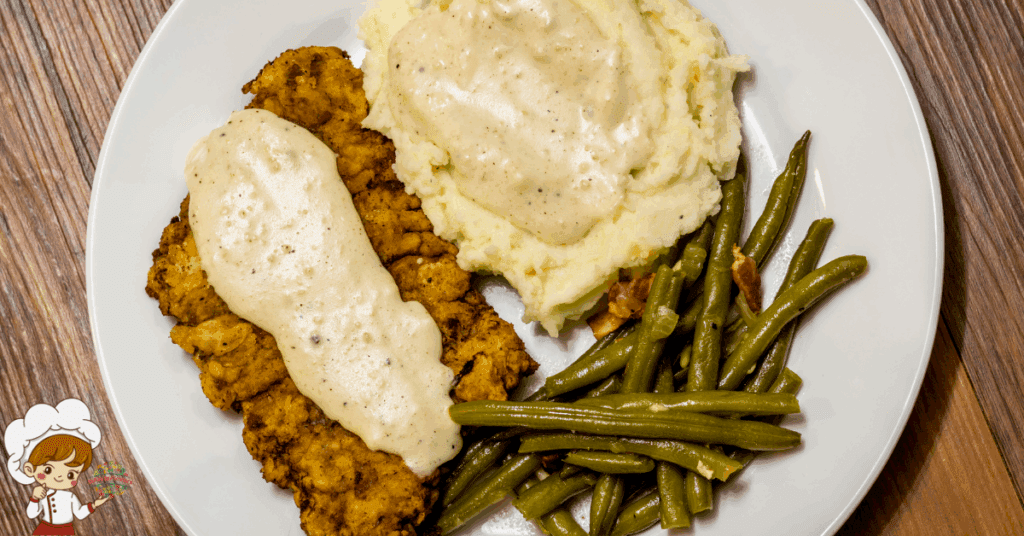
The History Of The Best Country Fried Steak, a dish beloved across the Southern United States, evokes the hearty, indulgent essence of home-cooked comfort food. This classic meal—typically made from a tenderized beef cutlet that is breaded, fried, and smothered in creamy gravy—has earned its place on diner menus, family dinner tables, and in soul food traditions. Though sometimes confused with its cousin, chicken fried steak, country fried steak holds its own distinct identity within America’s culinary heritage. But where did it come from, and how did it become a staple of Southern cooking? To fully appreciate country fried steak, it’s worth exploring its roots, influences, regional variations, and enduring appeal across generations.
The Foundations: European Influences on Fried Meat Dishes
To understand the origins of country fried steak, one must first look to Europe. The practice of breading and frying meat stretches back centuries. In Germany and Austria, a similar dish known as Wiener Schnitzel—a thin, breaded veal cutlet fried until golden brown—became a national favorite by the 19th century. Many historians trace the earliest iterations of country fried steak to German and Austrian immigrants who brought their culinary traditions with them to America during the 1800s.
As German immigrants settled in the American South, especially in Texas, they adapted their recipes to suit local ingredients and customs. Veal, the traditional meat used in schnitzel, was not as readily available or affordable in rural Southern communities. Instead, these immigrants turned to beef, particularly tougher cuts like cube steak or round steak, which were more common and economical. To make the meat tender enough for frying, it was pounded or mechanically tenderized—a key preparation method that persists in country fried steak recipes to this day.
The fried meat cutlet was a familiar comfort to these settlers, and they began recreating the dish using what they had on hand. This act of culinary adaptation marked the beginning of what would later become country fried steak.
The Southern Connection: Adaptation and Innovation
As the Germanic fried steak technique evolved in America, it began to take on distinct Southern characteristics. The South, with its agrarian roots and frugal culinary practices, naturally embraced a dish that made use of inexpensive meat cuts and pantry staples like flour, salt, and pepper. Over time, the dish became closely associated with rural Southern cuisine, where fried foods were a common part of everyday meals.
In Southern kitchens, country fried steak became a reliable way to turn tough, affordable meat into a flavorful, satisfying entrée. Instead of using veal or pork, Southern cooks favored beef steak—often cube steak—that could be tenderized, breaded, and pan-fried in a cast iron skillet. The defining touch came with the addition of gravy. Rather than the brown gravies typical in other meat dishes, Southern cooks developed a creamy, peppery white gravy made from milk and pan drippings. This gravy poured generously over the fried steak created a rich, indulgent combination that embodied Southern comfort food.
Country Fried Steak vs. Chicken Fried Steak
The terms “country fried steak” and “chicken fried steak” are often used interchangeably, but there are subtle differences that distinguish the two. Both dishes involve breaded and fried beef, but the primary distinction lies in preparation and presentation.
Country fried steak is generally dredged in flour, fried in a skillet (often shallow-fried rather than deep-fried), and topped with brown or white gravy. It often has a softer, less crispy exterior and is associated more broadly with Southern and Appalachian home cooking traditions.
Chicken fried steak, by contrast, mimics the method used to fry fried chicken—hence the name. It typically involves dipping the steak in an egg wash before breading, then deep-frying it for a crispier, golden crust. Chicken fried steak is most strongly associated with Texas and usually comes topped with white cream gravy.
Although they share many similarities, these slight differences have sparked regional loyalties and debates about which version is superior. In some states, the line between them is blurred, and menus may list one or the other—or both—depending on local preferences.
The Role of Southern Hospitality and Hearty Cuisine
Country fried steak gained popularity as a cornerstone of Southern hospitality and hearty home cooking. It became a Sunday dinner favorite, often served with mashed potatoes, green beans, and biscuits. Its association with large, communal meals and the warmth of family gatherings helped embed it into the fabric of regional identity.
Southern food has long been about making the most of simple ingredients to create satisfying meals. In this context, country fried steak was more than just a way to stretch a tough piece of meat—it was a symbol of ingenuity and resourcefulness. The creamy gravy, comforting sides, and crispy meat combined to deliver maximum satisfaction with minimal cost.
Church potlucks, school cafeterias, and roadside diners helped spread the dish beyond individual homes and across the Southern region. Eventually, it became a fixture in Southern cookbooks and an emblematic offering in soul food traditions.
Country Fried Steak Goes National
By the mid-20th century, the popularity of country fried steak had spread beyond the South. As Americans became increasingly mobile, moving from rural areas to cities and from state to state, they carried their culinary traditions with them. Southern transplants brought their recipes to new communities, where diners, cafeterias, and casual restaurants began adding the dish to their menus.
The rise of chain restaurants in the 1970s and 1980s helped cement country fried steak’s place in the broader American food landscape. Family-style restaurant chains like Cracker Barrel, Bob Evans, and Denny’s began offering the dish as part of their regular menu, introducing it to customers from all backgrounds and regions.
Television cooking shows, food magazines, and later the internet provided additional platforms for country fried steak to gain recognition. Home cooks in the Midwest, Northeast, and even the West Coast began to adopt and adapt the dish, adding local twists or serving it as part of breakfast, brunch, or dinner.
Modern Takes and Regional Variations
While the traditional preparation of country fried steak has remained largely unchanged, modern chefs and food enthusiasts have put their own spins on the classic dish. In some gourmet interpretations, chefs use high-quality cuts of meat and create more complex gravies infused with herbs or artisanal dairy. Others experiment with gluten-free breading or alternative proteins to accommodate dietary needs.
Regional differences also continue to shape how the dish is enjoyed. In parts of the Deep South, it’s not uncommon to see country fried steak served with red-eye gravy or tomato-based sauces. In Appalachian kitchens, it may appear alongside stewed greens and cornbread. In modern brunch spots, it might be sandwiched between biscuits or layered with fried eggs and hot sauce.
These adaptations reflect the dish’s flexibility and enduring relevance. Country fried steak may have humble origins, but its cultural and culinary footprint continues to grow.
Cultural Significance and Emotional Resonance
Country fried steak is more than just a hearty plate of food—it’s a connection to the past. For many, it represents family traditions, cherished recipes passed down through generations, and memories of meals lovingly prepared by parents or grandparents. Its rich flavor and rustic appeal evoke feelings of nostalgia and comfort, especially in times of uncertainty or transition.
As food trends evolve and global cuisines influence American palates, dishes like country fried steak serve as anchors to regional identity. They remind people of where they come from, what their communities value, and how food can bring people together. Whether it’s prepared in a bustling Southern kitchen or recreated in a modern urban apartment, country fried steak continues to nourish both body and soul.
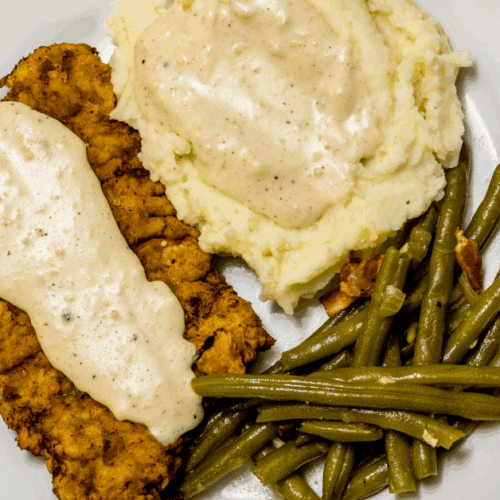
Classic Country Fried Steak with Cream Gravy
Ingredients
- For the Steak:
- 4 beef cube steaks about 4–6 oz each
- 1 ½ cups all-purpose flour
- 1 teaspoon salt
- ½ teaspoon black pepper
- ½ teaspoon paprika
- ½ teaspoon garlic powder optional
- 2 large eggs
- ½ cup whole milk
- Vegetable oil for frying
- For the Cream Gravy:
- 3 tablespoons pan drippings or butter, if needed
- 3 tablespoons all-purpose flour
- 2 to 2 ½ cups whole milk
- Salt and lots of black pepper to taste
Instructions
- Instructions:
- Prepare the Coating:
- In a shallow dish, combine the flour, salt, pepper, paprika, and garlic powder (if using). In another shallow bowl, whisk together the eggs and milk.
- Dredge the Steaks:
- Pat cube steaks dry with paper towels. Dredge each steak in the flour mixture, dip into the egg mixture, then dredge again in the flour, pressing gently to help the coating adhere. Set aside on a plate.
- Fry the Steaks:
- In a large skillet (preferably cast iron), pour enough vegetable oil to cover the bottom by about ¼ inch. Heat over medium-high until hot but not smoking. Fry steaks one or two at a time (do not crowd the pan), cooking for about 3–4 minutes per side or until golden brown and crispy. Transfer to a paper towel-lined plate.
- Make the Gravy:
- Discard all but 3 tablespoons of the pan drippings. Reduce heat to medium. Add flour and whisk constantly for 1–2 minutes to form a roux. Gradually whisk in milk, stirring to prevent lumps. Cook, whisking frequently, until thickened (about 4–6 minutes). Season generously with salt and pepper.
- Serve:
- Place steaks on plates and spoon warm cream gravy over the top. Serve immediately with mashed potatoes, green beans, or buttermilk biscuits.
FAQ: The History Of The Best Country Fried Steak
What is country fried steak?
Country fried steak is a Southern dish made from a tenderized beef cutlet that is breaded, fried, and typically served with a creamy white or brown gravy.
Is country fried steak the same as chicken fried steak?
No. While both dishes are similar, country fried steak is usually pan-fried and may use brown gravy, while chicken fried steak is deep-fried and topped with white cream gravy.
What kind of meat is used in country fried steak?
Cube steak, which is a tenderized cut of beef (often top round or bottom round), is commonly used for its affordability and texture.
Why is it called “country” fried steak?
The term “country” emphasizes its rural, home-cooked roots, distinguishing it from more urban or sophisticated culinary fare. It reflects the dish’s popularity in rustic, Southern kitchens.
What kind of gravy is used?
Country fried steak is often served with a creamy milk-based white gravy seasoned with black pepper. Some regions also use brown gravy or variations depending on local preferences.
Can country fried steak be made with other meats?
Yes. While beef is traditional, pork or even chicken can be used in modern or creative adaptations. Vegetarian versions using mushrooms or plant-based proteins also exist.
Is it a breakfast or dinner dish?
Traditionally a dinner entrée, country fried steak is also served at breakfast or brunch in many restaurants, often with eggs and biscuits on the side.
How is it different from schnitzel?
Wiener schnitzel uses veal and is typically served without gravy, while country fried steak uses beef and is topped with gravy. The breading and frying techniques are similar, reflecting their shared European roots.
Is country fried steak unhealthy?
Like many comfort foods, country fried steak is high in calories and fat due to the frying and creamy gravy. However, lighter versions using leaner meat, baked preparations, or lower-fat gravies can be made at home.
Where is country fried steak most popular?
Country fried steak is especially popular in the Southern United States, including Texas, Georgia, Alabama, and Tennessee, but it’s enjoyed throughout the country today.




